North Korea launched two short-range ballistic missiles on Wednesday, violating U.N. Security Council resolutions and drawing sharp condemnation from the Japanese government. The provocative launch suggested tensions are rising on the Korean peninsula again after a relatively peaceful interlude during the Wuhan coronavirus pandemic.
North Korea launched its missiles from its eastern coast, sending them about 500 miles at a cruising altitude of 37 miles before splashdown inside Japan’s exclusive economic zone.
“This is an outrage that threatens our nation and regional peace and security,” Japanese Prime Minister Suga Yoshihide declared.
Suga said the launches were “completely inexcusable” violations of relevant U.N. Security Council resolutions that forbid North Korea from testing ballistic and nuclear missile technology.
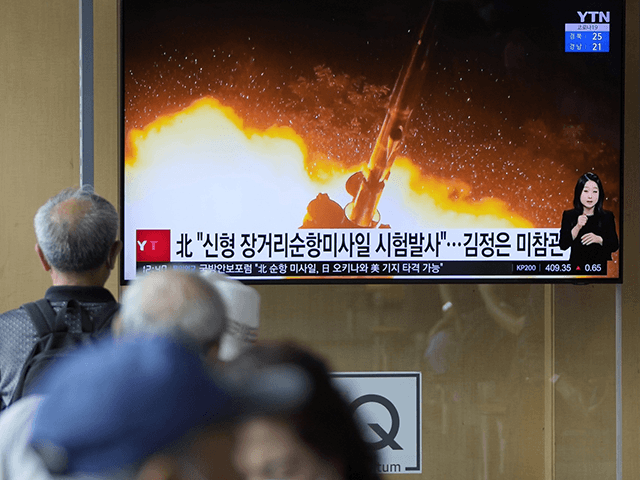
People watch a news program that was showing part of a North Korean handout photo that says, “North Korea’s long-range cruise missiles tests,” in Seoul, South Korea, September 13, 2021. (AP Photo/Lee Jin-man)
“North Korea’s recent repeated launches of ballistic missiles and other projectiles are a serious problem for Japan and the international community as a whole,” the Japanese Defense Ministry said.
Kyodo News reported an emergency meeting between senior U.S. and Japanese diplomats was held in Tokyo on Wednesday to reaffirm support for the U.N. resolutions.
The U.S. State Department also condemned the missile launch and called on North Korea to “engage in dialogue” instead of provocations.
“Our commitment to the defense of the Republic of Korea and Japan remains ironclad,” the State Department stressed.
The New York Times noted the launch “occurred a day after the special envoy from the United States urged North Korea to resume nuclear disarmament talks, saying that Washington had no ‘hostile’ intent toward Pyongyang.”
It may also be significant that the missiles were launched soon after Chinese Foreign Minister Wang Yi, who represents North Korea’s most powerful supporter, met with South Korean Foreign Minister Chung Eui-yong in Seoul.
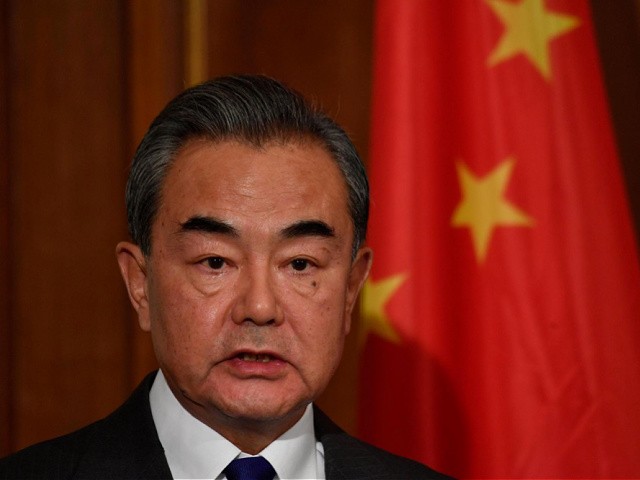
Chinese Foreign Minister Wang Yi addresses a joint press conference with the German foreign minister after talks on February 13, 2020, at the German Foreign Ministry’s Villa Borsig in North Berlin. (John MacDougall/AFP via Getty Images)
Wang seemed to excuse North Korea’s actions by implying America and South Korea have behaved in comparably provocative ways by holding military drills, although he did not make specific accusations.
“It’s not just North Korea, but other countries as well that engage in military activities. We must all work together to resume dialogue. We all hope to contribute to peace and stability on the Korean Peninsula,” Wang said.
South Korean officials expressed “deep concern” over the launches and said North Korea’s actions would be carefully analyzed.
South Korean President Moon Jae-in expressed confidence that his country has “sufficient deterrence to respond to North Korea’s provocations at any time,” and pledged to continue developing weapons that can “overwhelm North Korea’s asymmetric power.”
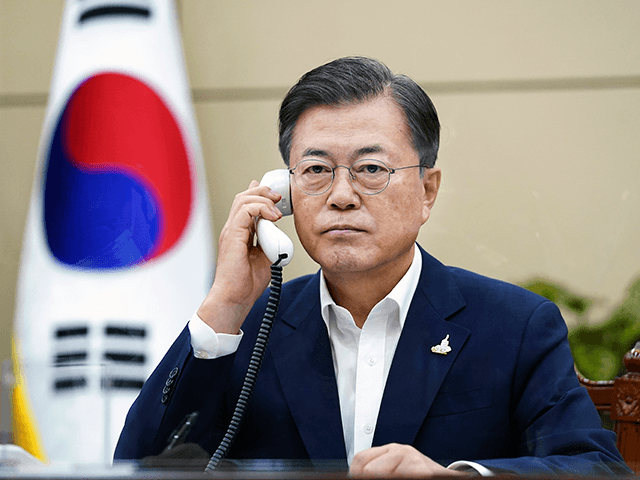
In this photo provided by South Korea Presidential Blue House, South Korean President Moon Jae-in talks on the phone with Japanese Prime Minister Yoshihide Suga at the presidential Blue House in Seoul, South Korea, September 24, 2020. (South Korea Presidential Blue House via AP).
To that end, South Korea tested a submarine-launched ballistic missile (SLBM) on Wednesday, becoming the first non-nuclear power to successfully launch a ballistic missile from a sub. North Korea, by contrast, claims to have developed SLBMs but lacks reliable submarine platforms that could launch them.
President Moon was in attendance as the test weapon was fired from a new 3,000-ton Dosan Ahn Chang-ho-class submarine. “Possessing a SLBM has significant meaning in securing deterrence against omnidirectional threats, and it is expected to play a key role in building self-defense capability and peace on the Korean peninsula,” Moon’s office said.
South Korea’s pugnacity enraged Kim Yo-jong, the powerful sister of North Korean dictator Kim Jong-un. In a statement released through the Communist dictatorship’s state media, Kim Yo-jong threatened dire consequences if Moon continues threatening and “slandering” North Korea.
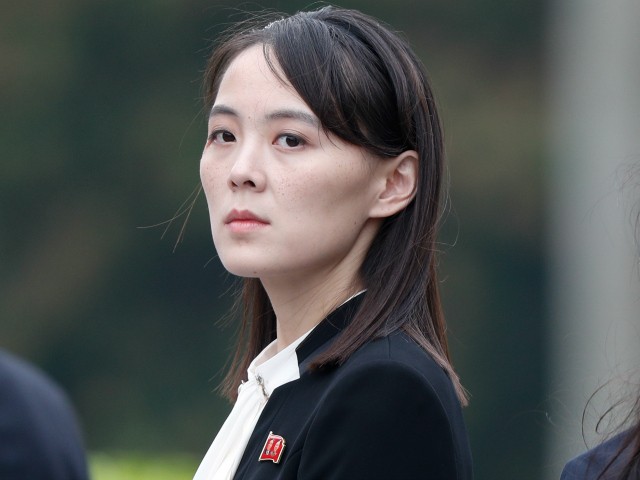
Kim Yo Jong, sister of North Korea’s leader Kim Jong Un, attends wreath-laying ceremony at Ho Chi Minh Mausoleum in Hanoi, March 2, 2019. (Jorge Silva/AFP via Getty Images)
“If the president joins in the slander and detraction, this will be followed by counter actions, and the North-South relations will be pushed toward a complete destruction. We do not want that,” Kim fulminated.
“North Korea is trying to communicate a message that things will not go as Washington wishes, if it doesn’t accept the North’s demands,” Seoul-based analyst Moon Seong-mook told the Associated Press on Wednesday, suggesting North Korea may hope to take advantage of the Biden administration while it is “embroiled in a domestic debate following the chaotic pullout from Afghanistan.”
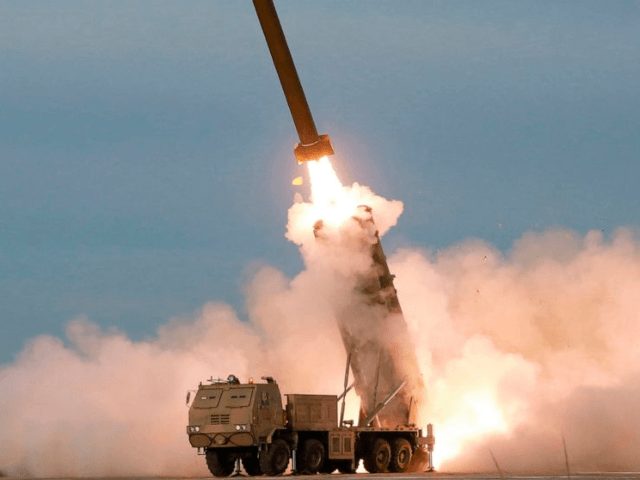
COMMENTS
Please let us know if you're having issues with commenting.